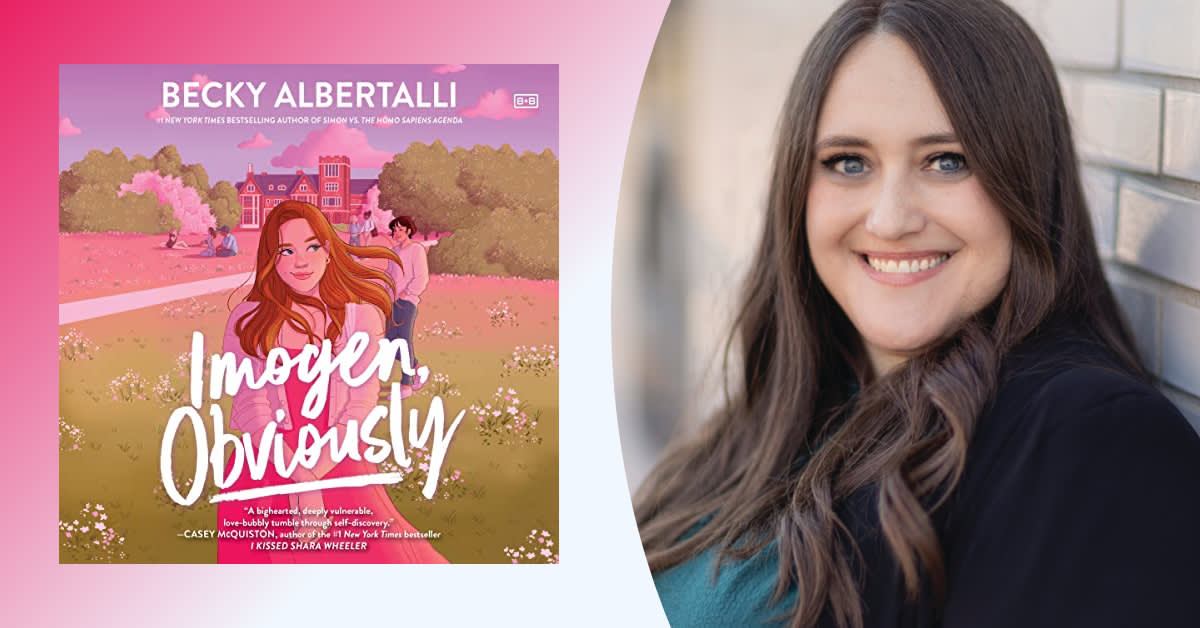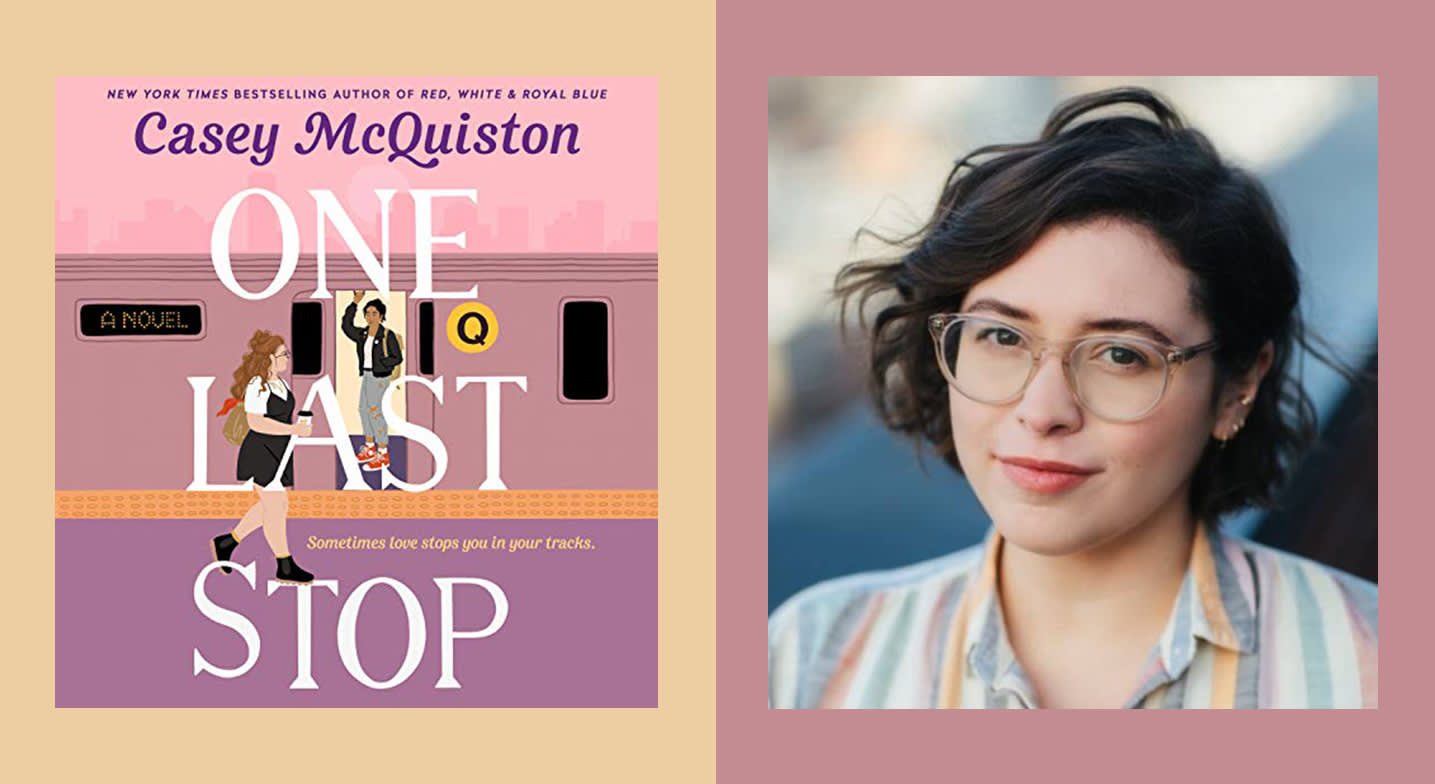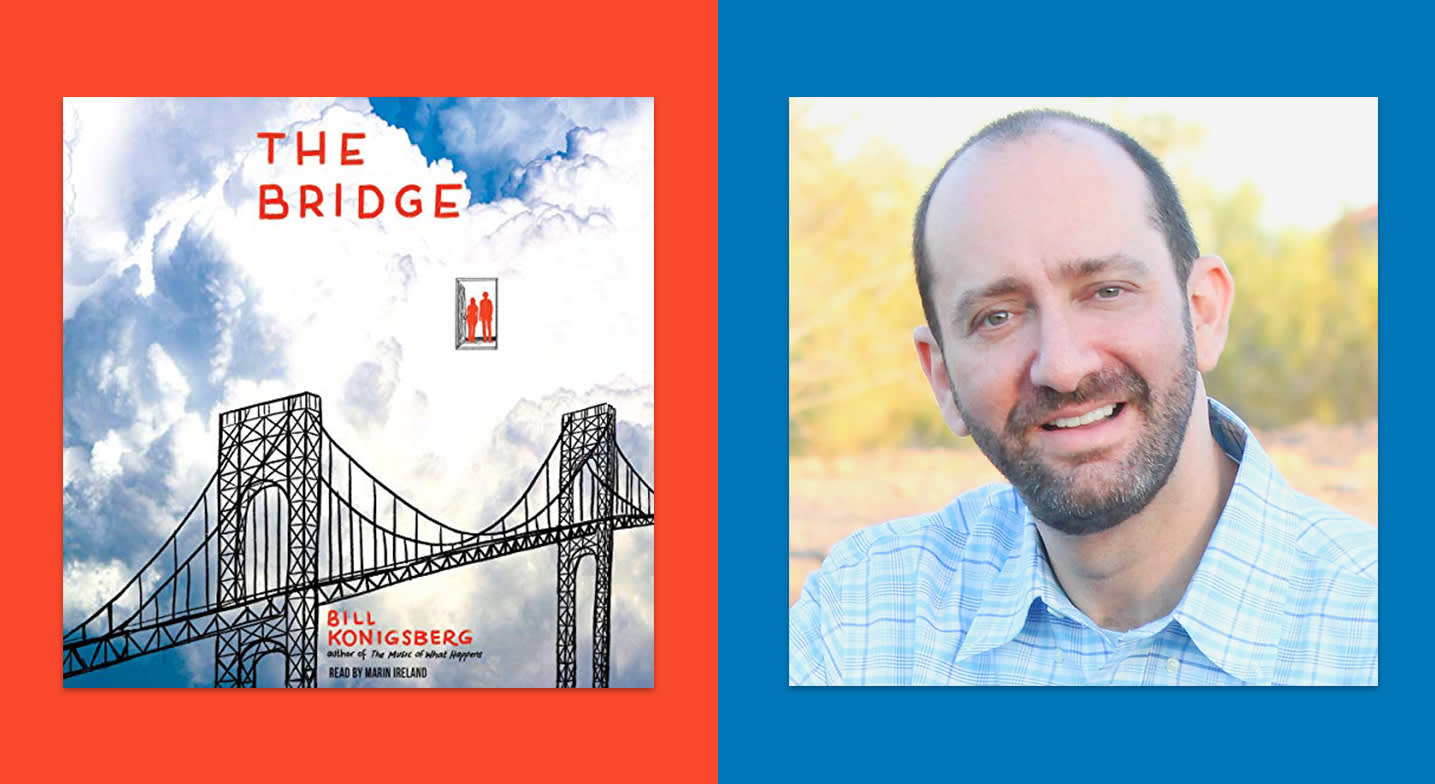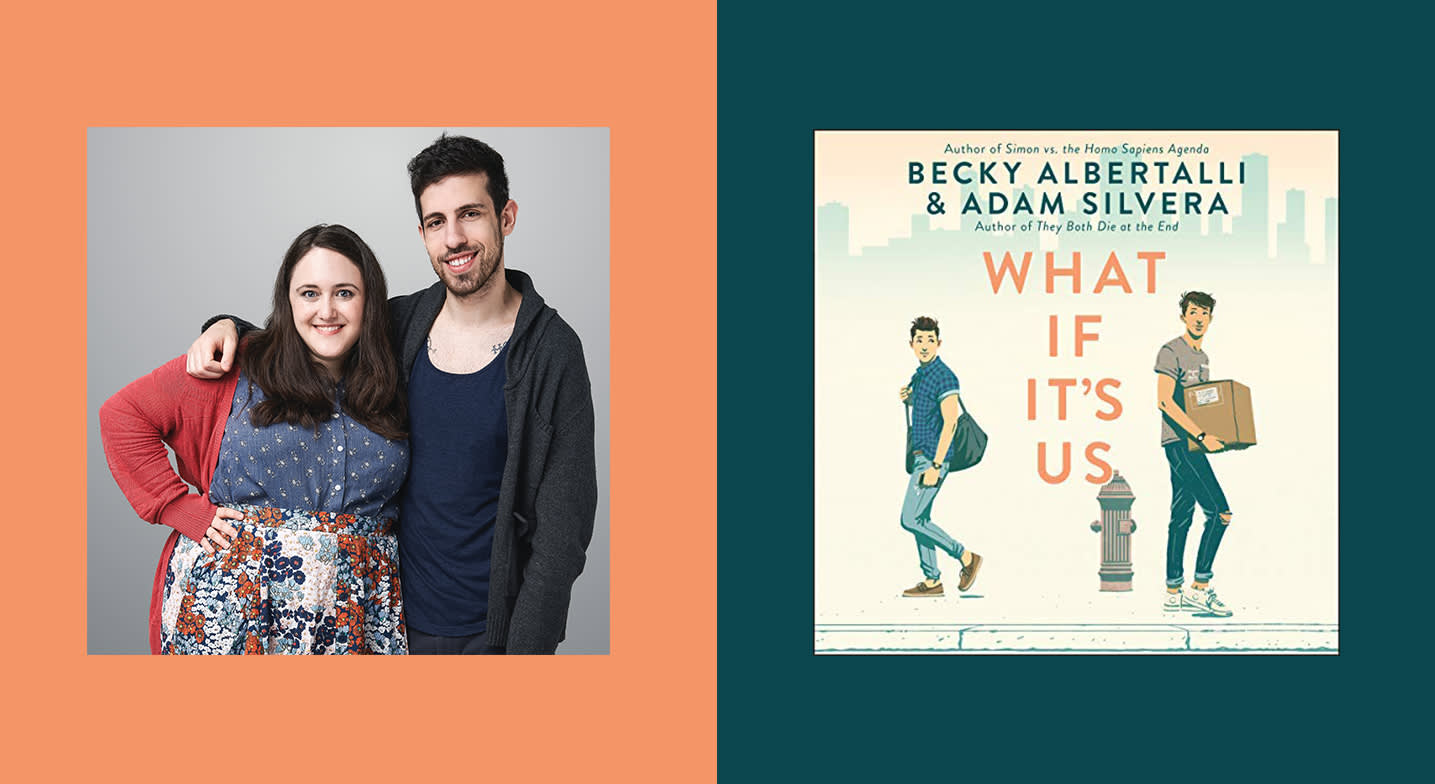Bestselling author Becky Albertalli has long had a knack for writing LGBTQIA-inclusive stories that both charm and delight her listeners. Perhaps best known for her Simonverse series and its film adaptation, Albertalli was also subjected to online scrutiny and invalidation surrounding her own identity. But now, nearly three years after her own complicated and public coming out journey, she’s ready to reflect on those experiences with Imogen, Obviously. With a character that not only mirrors Albertalli’s experiences surrounding sexuality and coming out, this story also dives head first into the issues of biphobia, gatekeeping, and the fraught discourse that still surrounds coming out.
Audible: You have such a knack for writing lovable characters, and Imogen is no different. What’s your secret for creating such relatable, realistic, and fan-favorite characters?
Becky Albertalli: This is so kind. I’m very glad to hear you find them lovable! I desperately wish I knew a foolproof secret for developing realistic characters—I feel like I’m fumbling my way through the basics every time. I tend to write pretty extensive character backstories early in the drafting process, mostly just to shake the feeling that I’m writing about strangers. But to really capture a character’s voice, I’ve found I have to write my way there. Usually something clicks for me about halfway through the drafting process, and then I can rework the beginning of the book once I have a better sense of who’s telling the story.
Why did you choose to tell this story now? What do you hope listeners take away from it?
This actually wasn’t supposed to be my next book! Imogen slipped into my brain when I was in the early stages of working on a different project, and I couldn’t stop thinking about her. She was all I wanted to work on. I’d just gone through my own complicated, excruciatingly public coming out experience, and the discourse left me feeling dehumanized and exposed. Writing this story felt like my chance to reclaim a bit of that narrative. It’s hard to know precisely how it will land with listeners, but maybe it can be a reminder that there’s no single queer experience. We have to make space for our differences.
You address this a bit in your author’s note, but your own coming out story was pretty public and—to put it mildly—didn’t really happen on your own terms. Having had that experience, what was it like writing Imogen’s coming out story? Are there any specific moments that were influenced by your own journey with coming out?
For the most part, it was cathartic! I’ve been grappling with this confusion for years, and it can be very hard to talk about directly. With Imogen, I had the chance to walk through what my experience felt like at every stage. Imogen’s story differs from mine in many ways, but she’s absorbing the same discourse and experiencing a lot of the same emotions. Putting these thoughts on the page helped me understand and unpack them. I think listeners who know my coming out story will see its influence pretty clearly.
I’d say the most direct reference to my own experience happens around the middle of the story, during a conversation about an actress who came out after years of criticism and scrutiny. Unfortunately, I had many recent real-world examples to draw from here. Imogen reflects upon a few of them—I don’t reference them by name, but I think a lot of people will recognize some of these particular moments and controversies. It felt important to recognize the broad impact of this scrutiny. Imogen has no personal connection to this fictional actress, but she’s deeply affected by this discourse—just like my own listeners were affected by the discourse about me.
Sexuality is fluid and exists on a spectrum—and can often be a difficult and complex aspect of our identity. What would you say to folks who might be grappling with their own identities or sexuality? Is there anything you know now that you wish someone had said to you?
These conversations are tough to navigate, since experiences vary so widely—but I always come back to the idea that it’s okay to be a work in progress. There’s no age by which you should fully understand your identity, and you definitely don’t owe anyone else that information. Give yourself space to explore, even if it never leaves your head. Make space for others, and know that queerness can look and feel different for different people.
For me, everything became more complicated when I tried to untangle these sentiments from other (often contradictory) threads of discourse. There was no age limit, but in my case, I should have at least figured this out by the end of my twenties. No one should feel pressured to disclose their labels—except me, of course, because I owed that information to my readers. I can’t emphasize this enough—these are very real perspectives that were (and are) frequently repeated in queer spaces. I took them to heart, which made it hard to carve out the space to ask myself questions.
What are some of your other favorite queer stories that you’d recommend for listeners who loved Imogen, Obviously?
I have so many favorites! I think listeners who like Imogen will also love Sophie Gonzales’s Perfect on Paper, Sonora Reyes’s The Lesbiana’s Guide to Catholic School, Kelly Quindlen’s Late to the Party, Malinda Lo’s A Scatter of Light, Adib Khorram’s Kiss & Tell, Casey McQuiston’s I Kissed Shara Wheeler, Leah Johnson’s You Should See Me in a Crown, Jennifer Dugan’s Some Girls Do, and Julian Winters’s Right Where I Left You. And, of course, they should pick up Saundra Mitchell’s novelization of The Prom, also narrated by the brilliant Caitlin Kinnunen!





